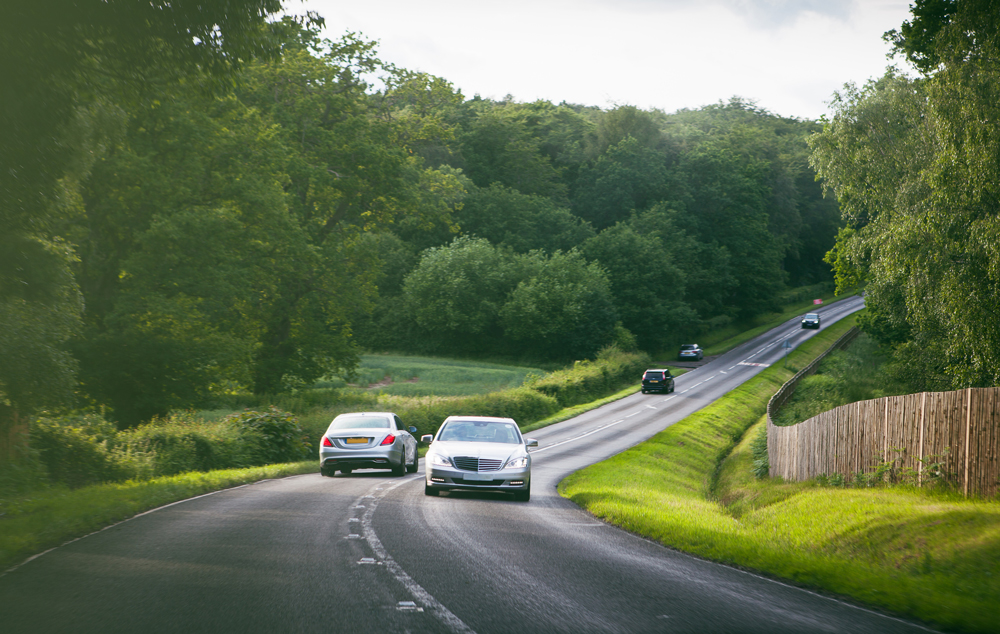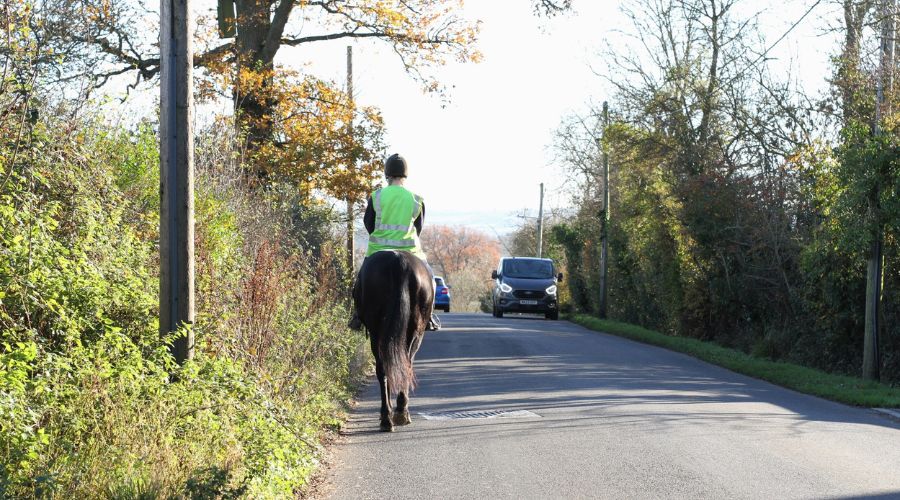Drivers urged to look out for increased rural traffic and unpredictable weather this Easter
30th March 2024
Rural road safety campaigner NFU Mutual is urging farmers to avoid common hazards while driving through rural areas this Easter.

This weekend, drivers may experience increased rural traffic and unpredictable weather conditions. A March Easter date raises the risk of dangerous and distracting hazards like glare from low sun, high winds, and changeable weather.
At a time when millions of people are expected to flock to the countryside for day trips or short breaks, in vehicles, on bicycles, on horseback and on foot, NFU Mutual is concerned that rural roads will become even more dangerous.
More deaths on rural roads
The campaigner’s analysis of the latest full-year official figures found that rural road deaths rocketed to a four-year high in 2022, with 1017 people losing their lives on countryside roads. This marks a rise of 14% from the previous year.
The Rural Road Safety Report published last year showed that there were 72% more deaths on countryside roads than urban roads, with an accident on a rural road being around four times more likely to result in a fatality.
A survey in the same report found that one in seven people had been in an accident on a rural road, with one in five admitting to being uncomfortable using rural roads.
Among respondents’ top concerns about rural road safety were blind corners (63%), narrow roads (53%), impatient drivers (50%) and people breaking the speed limit (47%). Greater traffic across this weekend and next week could increase these risks.
Be careful and considerate
Andrew Chalk, rural road safety spokesperson at NFU Mutual, said: “With Easter falling earlier this year, there is greater risk from common hazards, all of which make already-dangerous rural roads all the more perilous.
“Considering this, and the fact many people will be visiting the countryside who may not be used to the unique hazards of rural roads, all road users need to be careful and considerate to avoid the risk of a tragic accident this Easter.
“We know from our research that accidents on rural roads are common and that many people are uncomfortable using these roads, so we’re imploring everyone to be patient and practice our advice for safe road use.
“Our rural roads are a beautiful, shared resource and should be enjoyed by everyone this Easter. Don’t risk a life-changing or life-ending accident to get to your destination a few minutes earlier.”
Rural safety campaign
NFU Mutual launched its rural road safety campaign in 2020 in response to the disproportionate loss of life on rural roads, compared to urban roads.
The campaign is supported by British Cycling, the British Horse Society, and the four UK farming unions aiming to raise awareness of the unique hazards of rural roads to support all road users to reduce avoidable casualties.

Good to remember this Easter
Sara Western, motor expert at NFU Mutual, shares her top tips on how to tackle common hazards faced on rural roads:
- Speed limits, not targets – designated speed limits are provided as a maximum legal guide, however, hazards such as sharps bends, animals on the road and changing conditions often mean that drivers should determine their speed by the circumstances, rather than the speed limit.
- Winding roads – when driving on twisting roads, slow your car ahead of the bend to a speed which will allow you to stop should a hazard emerge around the corner.
- Mud on the road – mud, along with wet leaves, can be incredibly slippery in wet conditions; you should exercise caution and reduce your speed.
- Manure on the road – anyone driving on a rural road should expect to share it with horses and their riders.
- Limited vision – hedges and overgrown trees can make it difficult to clearly see the road ahead. Assess your speed according to your surroundings.
- Reacting to wildlife – look out for signs that indicate you may encounter wildlife. Larger animals present a bigger problem. If there’s no oncoming traffic then sounding your horn may startle the animal to move safely out of the way, whilst braking could reduce the severity of an impact, but always be mindful of vehicles behind you.
- Livestock delays – if the road is blocked by livestock the best thing to do is stop the car, turn off your engine and wait patiently.
- Farm traffic – if you do decide to overtake it, make absolutely sure the road ahead is clear and consider any junctions ahead that motorists may pull out from.
- Ice on or under bridges – the road surface on bridges will be the first to freeze when the temperate drops, whilst roads that run underneath them will often be the last to thaw. Consider your speed and stopping distance in icy conditions.
- Churches are a sign – if you see a church spire in the distance, it’s very likely that you’re about to drive into a residential area, so be prepared to reduce your speed and look out for vulnerable road users – especially children.
Read more rural news.
